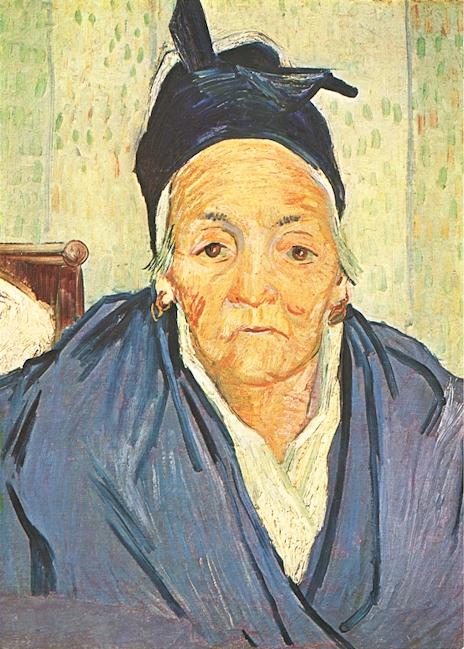Compassion & Choices is an end-of-life education and advocacy organization dedicated to assisting the terminally ill and enhancing end-of-life options, including aid in dying. Carole van Aelstyn is the Client Support Coordinator for Northern California. She has been a nurse for over 24 years, including 10 as a hospice worker.

Aurora: What does Aid in Dying mean?
Carole: According to the law in Oregon, “aid in dying” means that if a person is terminally ill, mentally capable and an adult, he or she can ask a doctor to write a prescription for lethal medication — which must be obtained and ingested by the ill him/herself.
Aurora: What does Compassion & Choices do, and how can it help people reading this blog?
Carole: Compassion & Choices is dedicated to providing choice at the end of life. We educate people on their options and advocate for people unable to receive services. We try to change the laws — Montana is our latest success. We brought aid in dying to the state supreme court, so it is now available because of our efforts.
In California, we offer end-of-life consultation services. I am the coordinator for northern California. People can call us and get counseling on what their choices are. We also tell people about the Right to Know Law, passed by California in 2009; it states that if your doctor says you are terminally ill and nothing more can be done, he or she must tell you about all your options (including stopping treatment, palliative sedation, and voluntarily stopping eating and drinking — as many patients in Oregon and many of my clients choose), but only if you ask! This law has very little teeth, because doctors in California are not bound to volunteer this information. The same law just passed in New York last month, after Compassion & Choices brought the case up — and so now in New York, you don’t have to ask your doctor to be educated about your end-of-life options.
The Compassion & Choices headquarters are located in Portland, Oregon and counselors in Portland take calls from anywhere in the country through an 800 number. We send a lot of information in the mail. I can’t tell you how many information packets I hand out at resource fairs. That’s the first step: having choice at end of life.
Aurora: Why is it so important to have an advance directive?
Carole: Just think of Terri Schiavo. People don’t know what you want unless you tell them. That’s it. Hospitals are going to treat you to the max unless you say this is what I want and this is what I don’t want.
You appoint three agents on any advance directive. It’s important to make sure they are on the same page you are — because you may be unconscious. Your agent must be able to tell the hospital and the doctor what you would have said. The only way to be clear is to give them a copy and go over it with them.
An advance directive is a very simple thing. It does not need to be notarized; it can be signed by your neighbors or anyone you know. On our website, we have advance directives for every state and lots of information on how to fill them out, situations involving dementia, and LGBT-specific information to insure partners can visit the hospital, etc. People think lawyers need to make them. You don’t need to pay a lawyer.
There is also something pretty new, called a POLST: Physicians Order Life Sustaining Treatments. Doctor’s orders carry a lot more weight. It specifies what type of recitation, intervention, and treatment you would like to receive and under what conditions you would want to be hospitalized. This is supposed to stop ping-ponging between facilities and hospitals at Medicare’s expense. We are advising our clients who are frail, elderly and living alone to have one posted in their house. However, this doesn’t supplant an advance directive because if you are already in a hospital, people need to know what kind of treatment you want.
Aurora: What advice do you have for people who don’t know how to initiate a conversation with their doctor or family about their end-of-life decisions?
Carole: Compassion & Choices has a good booklet called A Gentle Death that includes sample letters. We coach people on how to talk to their doctors and loved ones. I have a group of volunteers in Northern California, and a volunteer or I will gladly accompany someone to a doctor to be an advocate.
We’re all going to die, but when I walk into a client’s house, their shoulders are up to their ears. After I’ve sat down, explained things, and left literature with them, they’re relaxed. I tell them, “Now you can focus on living. You can attend to today when these things are taken care of.”
Aurora: Thank you so much, Carole!

 What is Aid in Dying? An Interview with Carole van Aelstyn
What is Aid in Dying? An Interview with Carole van Aelstyn


 “The Boy and the Heron” by Hayao Miyazaki
“The Boy and the Heron” by Hayao Miyazaki
 Honoring Seniors, Caregivers: Inside the Vision of Carehaus
Honoring Seniors, Caregivers: Inside the Vision of Carehaus
 “In Case You Don’t Live Forever” by Ben Platt
“In Case You Don’t Live Forever” by Ben Platt















I have had the pleasure to hear her speak and she is truly an authority on the subject. If anyone has questions regarding any aspect of aid-in-dying Carole is the one to contact. She does not change and offers a wonderful service to helping those who are finding their way through the process. We are happy to have had the opportunity to interview her. I highly recommend her.
Suzette
Report this comment
I have learn a few excellent stuff here. Certainly worth bookmarking for revisiting.
I surprise how so much effort you set to create this kind of great informative website.
Report this comment
I must thank you for the efforts you’ve put in penning this site. I really hope to view the same high-grade content from you later on as well. In fact, your creative writing abilities has encouraged me to get my own website now 😉
Report this comment